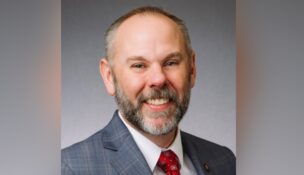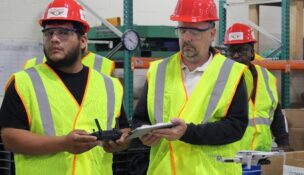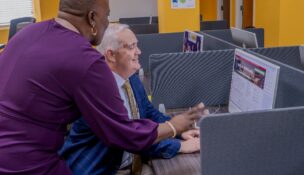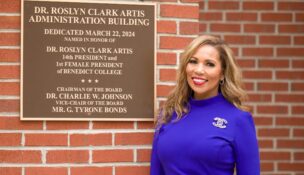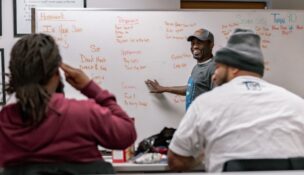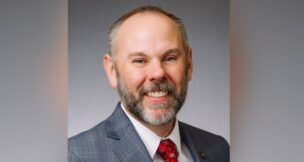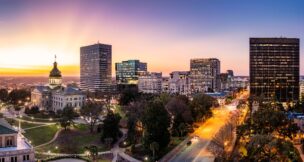Wilcox stepping down as USC School of Law dean
Staff //May 6, 2020//
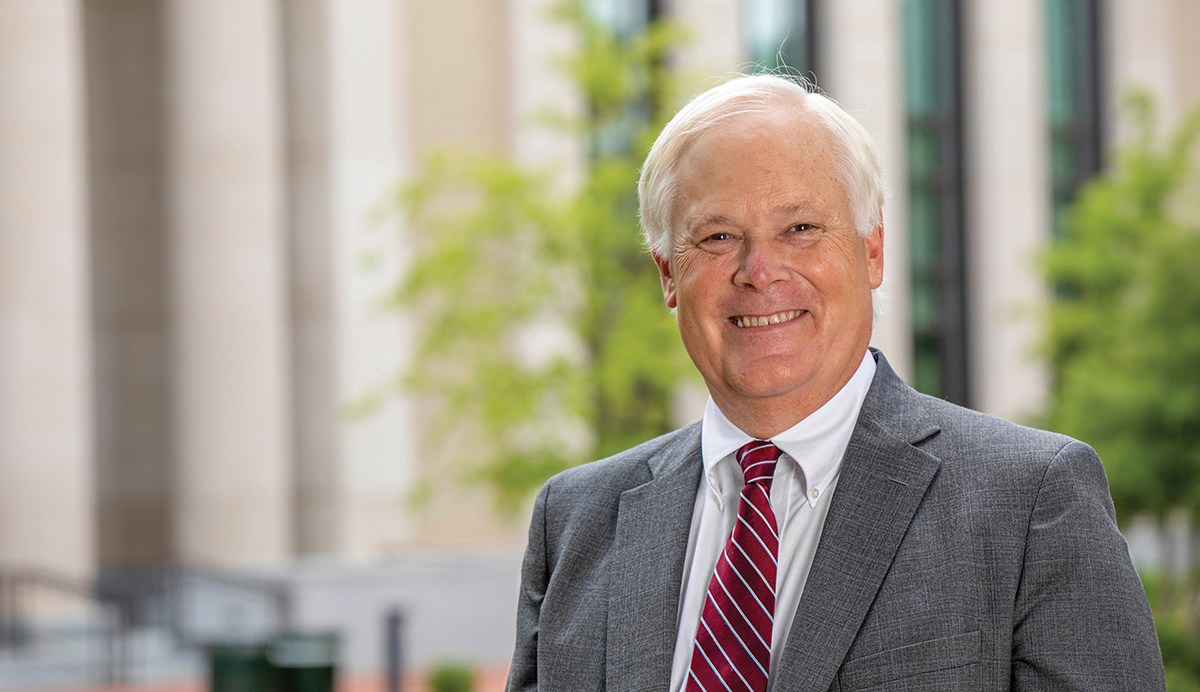 When Robert Wilcox walks into the University of South Carolina School of Law, he enjoys the view of the Dale Chihuly sculpture and sometimes hears someone playing the lobby’s baby grand piano — most often, very well.
When Robert Wilcox walks into the University of South Carolina School of Law, he enjoys the view of the Dale Chihuly sculpture and sometimes hears someone playing the lobby’s baby grand piano — most often, very well.
“Every day when I walk in this building, my brain pauses and thinks ‘Wow, this is special,’ ” he said. “And that’s what I want law students to think every day — that they have an opportunity that is special and they have the opportunity to really do good things for people.”
After nine years as dean of the law school, Wilcox is stepping down this month.
Although Wilcox guided the law school through the construction of the new building, which included the installation of the Chihuly sculpture, he said he’s most proud of what’s within the walls.
“The building was important,” Wilcox said. “But the building without all these other things in it would not have been enough.”
After serving as associate dean for academic affairs from 2006 to 2011, Wilcox became dean in 2011. But his connection to the law school goes back to 1981, when he earned his law degree from USC. In 1986 he joined the faculty after practicing with Dow, Lohnes & Albertson in Washington, D.C., and Atlanta.
He said the construction of the law school, completed in 2017, symbolized that the school was moving forward.
Since Wilcox became dean, the school hired 25 teaching faculty — about half of its faculty — at a time when Wilcox said other law schools did not expand, with some closing their doors. This allowed the university to lure the best people in the country to Columbia, Wilcox said.
“That gave us the opportunity to really change the school,” he said.
Wilcox said he also was proud that he was able to help lower tuition for in-state students, working with state legislators for a $5,100 reduction in tuition. Wilcox said he took satisfaction in the reduction because the law school was overpriced in the market.
“That was, I thought, a wonderful example of cooperation between the school and the state, to alleviate the costs to South Carolina residents,” he said.
Wilcox said another point of pride was modernizing the admissions process, going from paper to electronic applications so students knew if they were accepted faster.
He’s also proud of the school’s efforts to help students with career planning and help them find jobs that fit their individual goals.
“We have done a lot to focus on individualized career planning for students so that every first-year student sits down with a counselor, talks about what their goals are, and they set out a plan to get the right courses to have the right resume, to look at the right places for the jobs that they are wanting to have, and much better education of students as to the options that a JD degree provides them,” he said.
Changing the organization of the curriculum not only helped the school guide students to achieve their career goals, it helped prepare students for what they will face when they become lawyers, Wilcox said.
“We’ve made a lot of progress in the last decade of making the curriculum a sequential process where students have a very clear objective their first year,” he said. “They have a very clear objective their second year, and then their third year they have many more experiential opportunities than they used to have.”
The plan included expanding the Capstone program and adding externships, as well as clinics that provide free legal services to veterans and homeless people led by clinical professors.
“It’s become a really good service both to our students and to the community. That gives students the opportunity to represent actual clients,” Wilcox said.
Throughout his years in education, Wilcox said he’s seen an evolution of students wanting to actively understand their educational program.
“There wasn’t much effort to tell students what they were supposed to learn,” he said. “It was all assumed that it would be accomplished almost through osmosis — that there was a process in place and at the end of the day, it would work. But students never really understood what they were trying to accomplish or what they did accomplish. Students today don’t learn well in that environment. The students today want to know what the objective is clearly, what they’re trying to reach.”
“I think law school does a much better job today of preparing students for the realities of a law practice than it did. It used to be you learn most of what lawyers did after you graduated. Now you get a significant amount of that in law school.”
Wilcox said there are more mentoring programs now than when he joined the faculty. Judges are teaching courses, which gives students a more practical perspective on their professional duties.
Wilcox won’t take any credit, however, for the Chihuly sculpture ending up in the new law school. He said former university president Harris Pastides was able to secure the piece for the university, and since the building was under construction, asked Wilcox if he could use it.
“And I said ‘Yes, sir,’ ” he said.
When he became dean, Wilcox said he wanted people to see the law school as an asset to the state.
Part of that goal required adding faculty who were experts in contemporary issues such as environmental energy, policing or automated vehicles, “the kind of issues that the state needs expertise in,” he said.
Now Wilcox said it’s time for someone else to guide the school into the future in what he said is probably the coolest job he could imagine having, one he took with an expectation that he would stay for about eight years.
“I told people at the beginning, if I haven’t fixed the things that need to be fixed in eight years, then put somebody in who can fix them. If I have fixed them, it’s probably a good time to turn it over to another set of ideas,” he said.
Wilcox said he thinks the things he set out to accomplish at the school are on their way to being completed.
“I look back as a graduate of this school … everything that I’ve enjoyed as a professional started with the education I got at this school, and we try to encourage lawyers to remember that. It’s very important to look back at what got them started on the careers that worked for them and to help another generation come along,” he said.
After some time off, Wilcox plans to continue to teach some classes, preferably in legal ethics and professional responsibility, though he’s open to his successor’s decision.
“Knowing everything that I know about this job, I would do it over again,” he said. “It’s been a fun run.”
r





